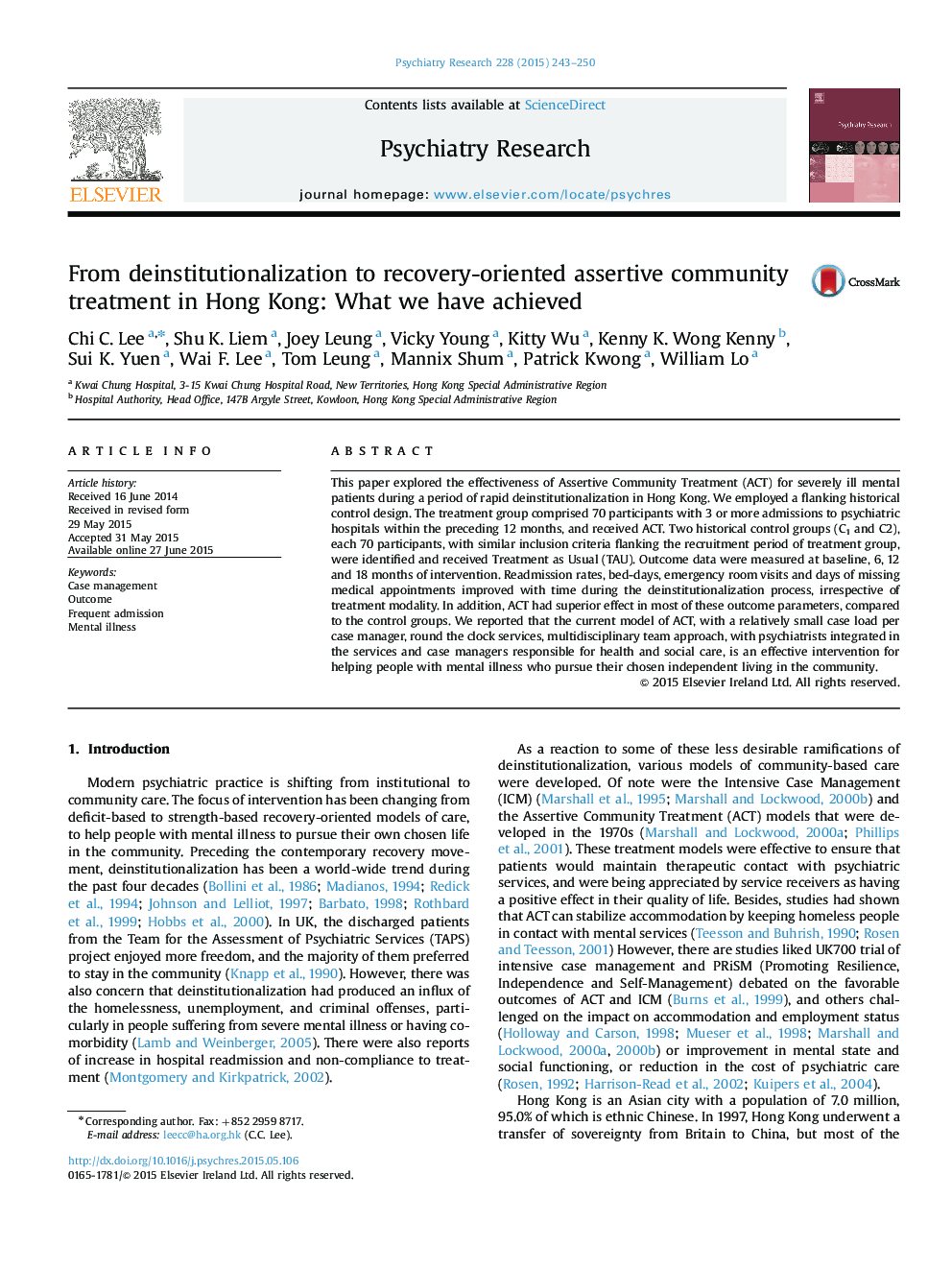| Article ID | Journal | Published Year | Pages | File Type |
|---|---|---|---|---|
| 10303663 | Psychiatry Research | 2015 | 8 Pages |
Abstract
This paper explored the effectiveness of Assertive Community Treatment (ACT) for severely ill mental patients during a period of rapid deinstitutionalization in Hong Kong. We employed a flanking historical control design. The treatment group comprised 70 participants with 3 or more admissions to psychiatric hospitals within the preceding 12 months, and received ACT. Two historical control groups (C1 and C2), each 70 participants, with similar inclusion criteria flanking the recruitment period of treatment group, were identified and received Treatment as Usual (TAU). Outcome data were measured at baseline, 6, 12 and 18 months of intervention. Readmission rates, bed-days, emergency room visits and days of missing medical appointments improved with time during the deinstitutionalization process, irrespective of treatment modality. In addition, ACT had superior effect in most of these outcome parameters, compared to the control groups. We reported that the current model of ACT, with a relatively small case load per case manager, round the clock services, multidisciplinary team approach, with psychiatrists integrated in the services and case managers responsible for health and social care, is an effective intervention for helping people with mental illness who pursue their chosen independent living in the community.
Keywords
Related Topics
Life Sciences
Neuroscience
Biological Psychiatry
Authors
Chi C. Lee, Shu K. Liem, Joey Leung, Vicky Young, Kitty Wu, Kenny K. Wong Kenny, Sui K. Yuen, Wai F. Lee, Tom Leung, Mannix Shum, Patrick Kwong, William Lo,
